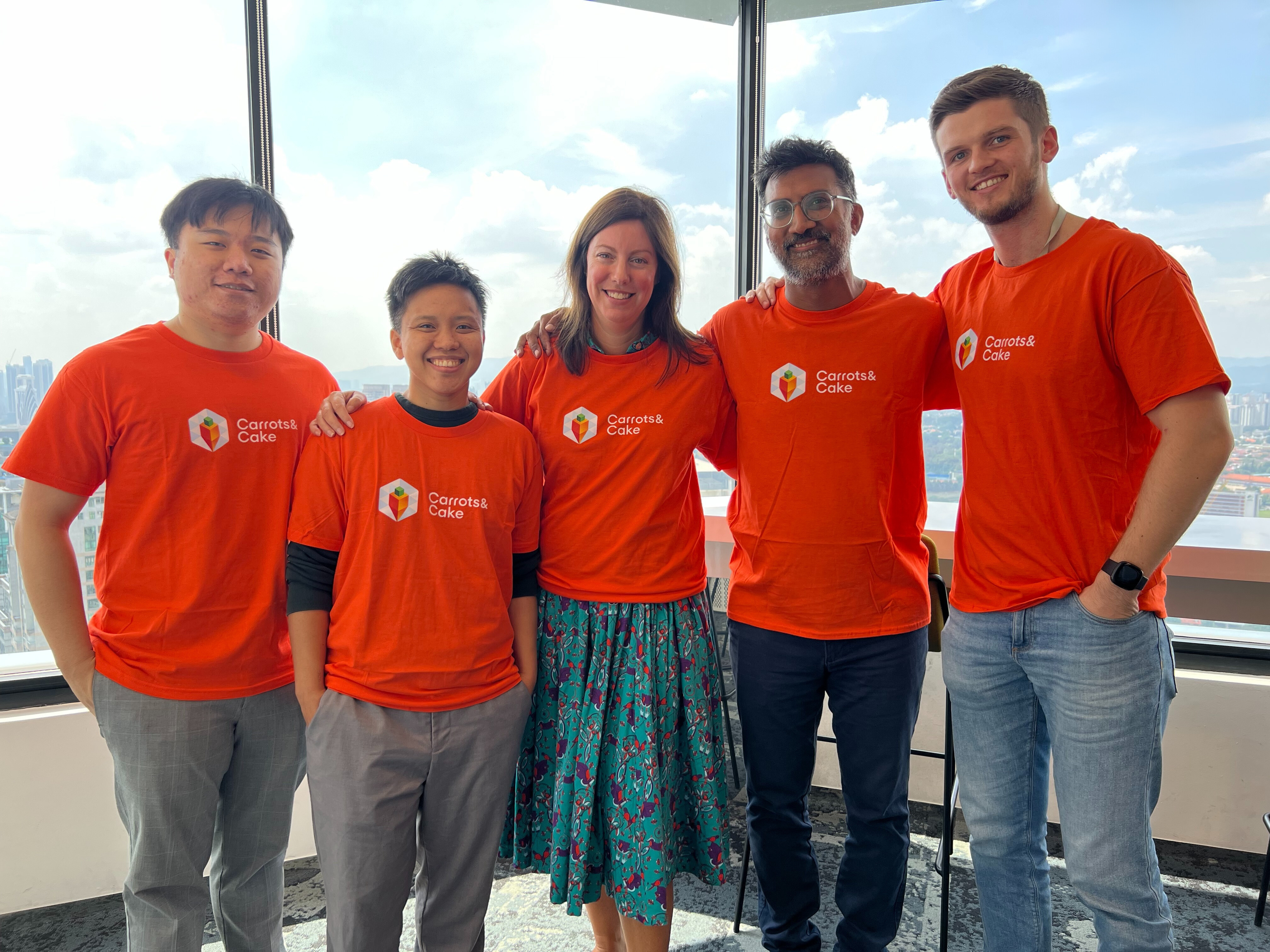With studies revealing alarming statistics around children’s screen time, Malaysia-based startup Carrots&Cake has unveiled a science-based approach to making kids’ screen time healthier.
In a statement last Monday (Oct 2), the platform said it maximizes the benefits of screens by allowing parents to set the order in which kids interact with apps. This balanced approach helps avoid dopamine feedback loops and allows kids to develop self-regulation.
Carrots&Cake is a parental control learning app, focusing on the science behind how kids interact with tech in order to try and change their behavior and build healthy habits. The app lets parents design their kids’ digital experience. Children will have to do learning apps first before they can access free screen time.
Recent screen time studies point toward a growing crisis:
- In May 2023, the US Surgeon General issued an official advisory warning of the dangers associated with the overuse of social media and the mental health of kids. This ‘call of urgent action’ urged policymakers, tech companies, and families to create healthier online environments to help children.
- Kids aged 9-12 average five hours and 33 minutes on screens daily. (Common Sense Media)
- Kids aged 5-8 average just 5 minutes a day on learning apps. (Common Sense Media)
Carrots&Cake, aims to change kids’ online behavior and help them develop healthy screen habits. With Carrots&Cake, parents can select any educational apps from the App Store – what the startup refers to as Carrots. When kids turn on their iPhone or iPad these are the only apps they can access. When learning time finishes, the rest of the apps on the device unblock and kids can express their agency during free screen time – Cake.
The approach – developed with parents, teachers, and doctors – benefits the developing prefrontal cortex of kids. It balances dopamine levels, introduces delayed gratification, and leads to the development of self control, resilience, and grit. At the same time, it counters the persuasive design of apps that keep kids hooked. Kids have fewer screen time tantrums, and parents can hand over devices guilt-free, according to the statement.
Early users report their kids’ time on learning apps tripled, while overall screen time was cut in half. As a result, the science-based app was selected from a review of thousands of applicants to pitch in front of investors and press at TechCrunch Disrupt 2023 in San Fransisco last month as part of Startup Battlefield 200, a startup competition.
Meredith DePaolo, a Yale-educated mom of two, and Co-founder of Carrots&Cake said, “Even when parents are at the office, they know that as soon as the kids jump off the school bus, run home for a snack, and throw open their iPads, the first thing they’ll do — without any nagging or prodding — is their homework app set up on Carrots&Cake. And that learning happens distraction free. No advertisements, no push notifications, no emails or texts. Kids are no longer digital zombies. Screen time becomes focused and intentional. ”
“No matter how good DuoLingo is, it can’t compete against Roblox. We have a solution. Let parents design their kids’ digital experience. Children do learning apps first before they can access free screen time. We do this naturally when we tell kids to do their homework before they play. By placing apps with a high cognitive load before high dopamine activities like games/streaming/social we create a balanced digital experience that allows kids to self regulate,” she told TNGlobal.
Co-founder Hamel Shah shared, “While other screen time controls simply set a time limit on how long kids use their devices, Carrots&Cake takes a kid-friendly approach to screen time that accounts for children’s developing brains and lack of self-regulation skills. We combine learning and fun to make devices more beneficial and less addictive.”
Existing parental controls fall short. They cause stress in the parent-child relationship because they are one-sided, monitor kids’ private behavior, and use GPS to track kids.
Screen use is controlled with blanket time limits that fail to account for different types of online activities. Often these controls get bypassed by tech-savvy kids.
Shah added, “Malaysia has been my home for more than fifteen years, in large part because of its entrepreneurial spirit. The mix of cultures, religions, and ethnicities that are Malaysia’s backbone inspires innovation and creativity. Other countries can’t compete. A strong pool of talent — and a steady diet of roti canai — feed Malaysia’s thriving startup ecosystem. These are the sentiments the team and I carried with us to San Francisco.”
Carrots & Cake said it is committed to transforming the digital parenting landscape, ensuring children’s screen time is safe, balanced, and healthy. It’s not about limiting screen time but about elevating screen time and empowering families, the company added.


